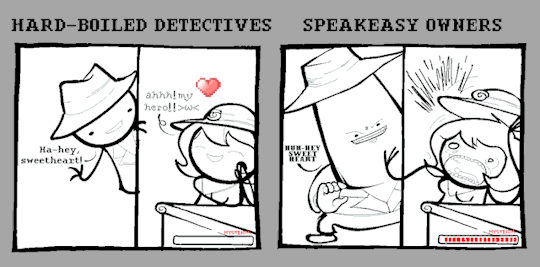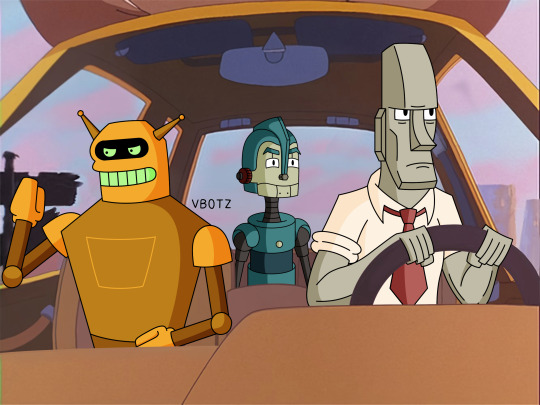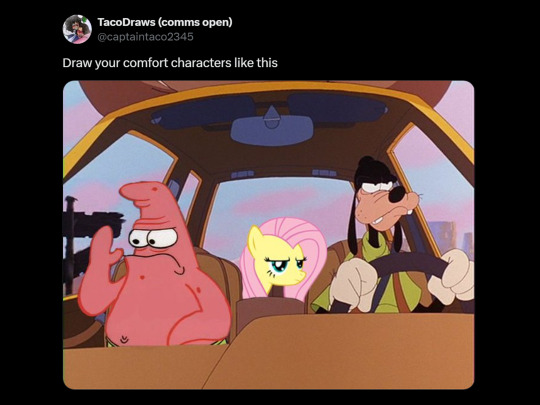#HUMAN RESOURCES
Explore tagged Tumblr posts
Text


I love these two
Art by Coelasquid on Twitter
68 notes
·
View notes
Text

Probably as much of a forced meme as Arrow to the Knee.
#ms paint adventures#problem sleuth#human resources#meme#hysterical dame#mobster kingpin#reddit meme#overused meme#meter#overreacting#animated gif#flailing
21 notes
·
View notes
Text
Hamas posted about martyrs today, forcing me to realize for the first time that Hamas...has an HR Department.

I would dearly love to see a full length, feature film mockumentary about a day in the life of the head of Hamas HR. It could show us what Human Resources policies and enforcement are like in an organization which has such an active disdain for human life.
I'd settle, though, for a sketch from Eretz Nehederet.
282 notes
·
View notes
Text

73 notes
·
View notes
Text

What if I was your HR lady? ;)
#black girls of tumblr#black women#ebony#melanin#pretty#sexy ebony#ebony women#black girl next door#black girls rock#ebony babe#ebonybeauty#ebony queen#ebony goddess#black goddess#black girl#black is beautiful#black beauty#black woman#black tumblr#black girl beauty#pretty black girls#black girls are beautiful#cute girl#tumblr girls#black girl aesthetic#black woman aesthetic#human resources#black girl magic#melanated#office
139 notes
·
View notes
Text
Bugs and more doodles


Starring Rochelle, @poverhearts and Sugarfly Cookie.

This was from a request piece I did on my instagram. And also Magical Girl Tyrannis was inspired by @clemworld
#fanart#crazychanuwu art#danganronpa#monokuma#mr ring a ding#paper rps#nick rps#paper#dandys world blot#krapopolis#king tyrannis#tyrannis#oc#oc art#doodles#human resources netflix#human resources#netflix#big mouth#big mouth netflix#sugerfly cookie#sugarfly cookie#cookie run kingdom#lovebug#gift art#cookie run fanart#cookie run#rochelle hillhurst
39 notes
·
View notes
Text

Hire Standard.
And more hiring.
39 notes
·
View notes
Text
sad lesbians
#big mouth#human resources#netflix#wlw#ship art#digital artist#art#artists on tumblr#my art#ibispaintx#small artist#digital art#wlw art#animation meme#lesbians#big mouth fanart
35 notes
·
View notes
Note
What an interesting topic. I’ve heard that a large percentage of employees cite their bosses as the reason they leave their jobs. What are some ways companies try to mitigate this?
They don't.
I can really only answer for my company, which cared about retention (of employees) a lot. Many companies do, because it costs much less to recruit/onboard/train as little as possible, and because it can be hard to get the work done without adequate staffing. I'd add that my company had one area in which staffing was a nation-wide crisis; also my company was in the public sector and was in the press a lot, which mean they cared about their image.
They still didn't do that much to ensure that people had good bosses. That has less to do with this company and more to do with the structure of business in capitalist society. This is a big reason HR is never going to be that helpful unless you've got a tiny company that, completely by luck, has mostly good folks.
A company isn't going to take a generalized point about folks leaving their job because they don't like their bosses as fact. Companies feel they are too diverse and the financial risk is too great to pour money into something if they don't have hard data, so the first step to retention is getting data. You would think exit interviews would be really informative, but those require a lot of time which equals staff which equals money. Some employers do them but mine would only do one if you asked, and then they did nothing with the info. This is because the company's mentality was "well, if you're leaving you're probably really dissatisfied and we don't want to hear about that." I know this makes no sense. But in general, not just in the business but in this society (formed by capitalism), the idea seems to be if you're dissatisfied it's your fault. Meanwhile the company is interested in data about why people stay; they figure if folks are satisfied, that's the company's fault and they want to keep doing the same so they can retain employees.
Our company had a huge employee satisfaction survey they did every year that included questions about employee opinions about the company, their colleagues, and their bosses. You get emails to remind you to take it and if you can't get time in the workday, bosses are supposed to allow time for it. Some problems with that are you still have to remember to take it; if you don't have time you have to ask a boss you might not like to get that time; some folks at my company literally had jobs that literally are life or death so it can be hard to take time to take a survey; the survey is only in English; the survey is only in the computer; the reminders are only in email. So you have to be a moderately good English speaker who regularly checks email and knows how to use a computer and gets regular access to a computer for the company to get your data about your satisfaction. As you can imagine, our most vulnerable employees often get missed.
If the survey showed that folks were really dissatisfied with a particular boss, that boss got put into a series of trainings. Training is good, but US businesses (and plenty of employees themselves) seemed to have latched onto the idea that training is the be-all, end-all of improvement. Many of us saw this in response to the discussions about EDI (equity, diversity, and inclusion) that came about in 2020; business promised to be anti-racist and had some EDI seminars to prove it, and that was all. Why is it like this? What is really needed to make bosses better bosses? And why isn't that being done?
When it comes to "why is it like this": recruiting and retaining good leaders is hard. The way someone becomes a boss in almost any organization is a) management likes them, and/or b) they were good at a job in a lower level or different department, or c) they come from the outside with a good resume and what sounds like good experience. But a lot of time, management likes people who aren't disruptive, and sometimes folks who aren't disruptive are the folks who are not thinking for themselves and not asking questions and doing everything the way they're told even when it doesn't make sense. That doesn't make a good leader. As for folks who are good at the lower level job in the hierarchy or in another department, they aren't always good at managing. It's a different skill set, but I've seen a lot of leaders and employees make this mistake. They think that that the folks who are great at the job should be promoted, and honestly that really doesn't make sense. And last but not least, folks who get hired from the outside are a complete crapshoot, because experience with leadership does not necessarily a good leader make.
As for what is needed to make bosses better bosses, imo what you would really need is someone embedded within the department who is managed by the boss and is doing the same work as the other employees, but also has the training and experience to evaluate what the boss is doing well and isn't doing well, and then also has the authority and buy-in to work with the boss so that the boss can shadow and learn the leadership skills they need. Then, if the boss can't improve, there would need to be the will within the org to fire or demote that boss, and often that will doesn't exist because recruiting bosses is so hard and the training is usually monumental.
Side note, what I'm describing is what consultants should do and normally don't. Consultants come in and ask a lot of questions and do focus groups and maybe some observations, but they are not in there doing the work understanding what it is like to live in this world, and without that I frankly find a lot of the work they do useless. That said, consultants are almost always hired to identify inefficiencies; they're not really there to make it a more satisfying job. Imo, the greatest efficiency is a satisfied worker, but it is hard to get the data to point that way, and again, companies only want data, and again, your dissatisfaction is your own fault.
Another side note, this is why unions are so great. Union stewards are folks who work for the company but can act as a union representative. This means they're embedded in the department and doing the work everyone does, but they can also at times step outside that role and carry the authority of an outside entity that does have some power to use against the employer. This is why all employees should have a union.
So, why aren't companies doing this? As you can imagine, hiring the ambassador to embed within a department, training them, paying them for their time--all of these are just too cost prohibitive to justify when they only thing you're getting out of it is employee satisfaction. It is also possible to improve employee satisfaction by paying employees more, which is in fact why I stayed in this job I hated as long as I did. I was getting paid so much that it just did not make sense to walk away without a firm plan in place. In the end, paying employees more costs less than ensuring they have a good boss.
I have lots more to say about this, but I've said a lot already, so if anyone has follow up questions, feel free to send more asks.
165 notes
·
View notes
Text
“Let us know if anything else happens”

(we ain't doing squat till you're bleeding out in the break room)
#human resources#human grief sources#this is a pattern#this is a parody#this is an emergency#do your job#bloody hell#hrfails#workplace harassment#toxic work culture#anti harassment#severance#adam scott#aftermetoo
950 notes
·
View notes
Text

#Gamer Dilbert#Powerup Comics#Jon#Lyman's Remains#RIP Lyman#Gay#Jon and Lyman were once gay together#Trial#Human Resources#Comic#Webcomic
52 notes
·
View notes
Text


I finally got around to doing this trend after over a month of art block.
And yes, my comfort characters are two robots and a rock.
#fanart#futurama#futurama fanart#calculon#robot#robots#human resources#human resources netflix#netflix#netflix fanart#pete doheny#pete the logic rock#robots movie#robots (2005)#robots 2005#robots 2005 fanart#rodney copperbottom
148 notes
·
View notes
Note
An intern for Avengers HR…
I wasn’t aware they had internships. I guess I can thank the multiverse for that.
Could I ask you to tell me more about your internship? I’m curious.
🌙🐈⬛/th3blackcatt
thank the multiverse, indeed.
sure! I mainly help out when it comes to assisting the avengers with, well— whatever it is that they need help with. complaint forms, paperwork, (which there is a lot of) you know, that kind of thing.
It was a lot to keep up with at first, but I like to think I’m on the right track now. not to mention, the people I work with? let’s just say it’s never a boring day at the office…
34 notes
·
View notes
Text

Me as a shade for @thehadeslounge banner submission
Because in hell we need workers rights and rightful pay too.
18 notes
·
View notes
